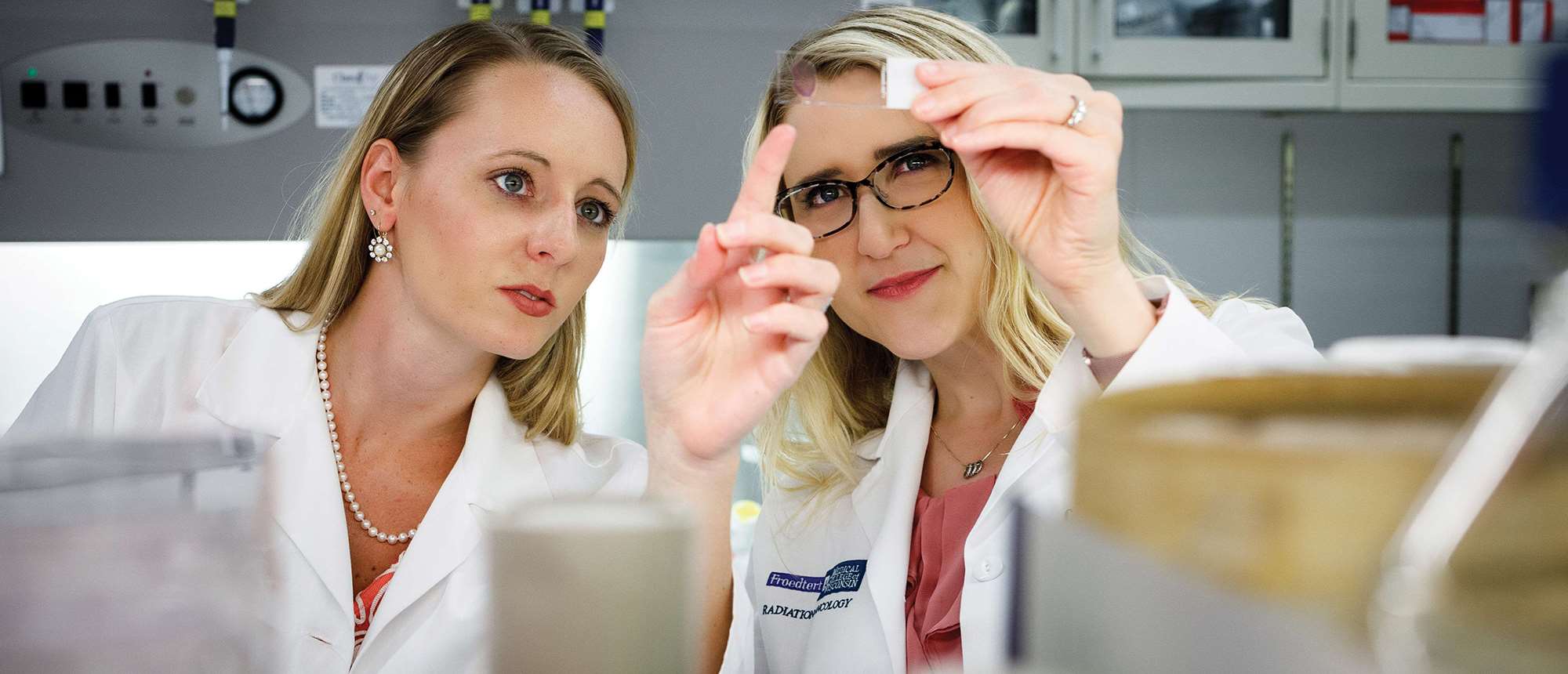WBCS: Investing in Potential

Michael J. Flister, PhD, MCW assistant professor of physiology, came up with the idea five years ago of developing a tool to measure how genetic risk factors influence the non-malignant portion of breast tumors. These non-malignant cells form a microenvironment that supports the growth of the tumors, and the tool would allow him to study how the cells impact cancer risk, progression and resistance to treatment. Leaders at WBCS, Inc. (Wisconsin Breast Cancer Showhouse), the top philanthropic donor for adult cancer research at the Medical College of Wisconsin Cancer Center, saw the potential of his idea and provided Dr. Flister with a two-year seed grant to develop data. From there, he published collaborative papers, received a National Institutes of Health grant to fund his research longer-term, and continues to evolve his efforts regarding how this work can improve cancer care.
“We are so fortunate at MCW to have an organization like WBCS that is willing to invest in our untested, unique ideas early on, when the potential exists – but perhaps the hard data does not,” says Dr. Flister. “I couldn’t have done it without WBCS seed funding, which definitely opened doors.”
Efforts such as these can have a synergistic effect. Carmen R. Bergom, MD ’08, PhD ’06, MCW assistant professor of radiation oncology, studied Dr. Flister’s model and believed she could use it to identify biomarkers within the same microenvironment to determine how well a patient would respond to radiation therapy. She applied for and received a WBCS seed grant to collect the data and refine her approach.
“I am devastated when one of my patients doesn’t respond to treatment, and I’m determined to figure out why this happens and someday develop a personalized radiation plan for each of them,” remarks Dr. Bergom. “Dr. Flister’s model allowed me to start down this road, and I could never have collaborated with him or expanded the scope of my work without WBCS investing in the potential of my idea.”
“The partnership between WBCS and MCW Cancer Center researchers is impacting research in ways neither could have achieved alone,” says Jan Lennon, WBCS scientific review chair. “WBCS is proud to be helping facilitate collaborations among researchers and clinicians that are transforming novel ideas into potentially life-saving discoveries for patients fighting these diseases.”
The data Dr. Bergom collected as part of her WBCS-funded research has led to her receipt of grants from Susan G. Komen, the Mary Kay Foundation and the Michael H. Keelan Jr. Research Foundation, and she recently presented at the Radiation Research Society’s annual meeting. She has applied for a National Institutes of Health grant and is planning additional animal model studies to expand upon her efforts.
WBCS, Inc. is an all-volunteer group that has raised $6.8 million since its formation in 1998 – all of which has supported seed grants at MCW in breast and prostate cancer research and an endowment for a research professorship. Collectively, the organization’s seed grant award winners have received an additional $69 million in external research funding, submitted countless papers and improved care for breast and prostate cancer patients.



